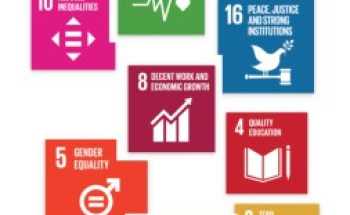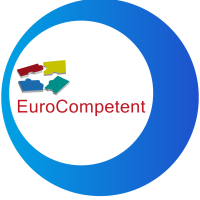
STEM vs. STEAM
The difference lies in the way they approach scientific concepts. While STEM focuses on the scientific, technological, engineering or mathematical skills. STEAM focuses both on hard and soft skills to solve problems.
Description
Educational environments should provide students with learning opportunities that integrate a variety of disciplines and skills. Multidisciplinary initiatives in schools should be planned properly, but not focus just on scientific subjects. Teachers sometimes lack the tools to organize their teaching which would enable learners to access content from broader, multidisciplinary perspectives. STEM or STEAM implements multi- disciplinary approach needed to build the creative, innovative problem solvers of tomorrow. This course will offer strategies and content to help teachers set up and grow STEAM program, content enrichment, a STEAM class, and tools. The course will examine the principles of STEAM and its practices, including design thinking, intentional observing, collaborating, persisting, reflecting, and communicating. Participants will share their ideas, work collaboratively on designing learning scenario implementing 5Cs STEAM principles .
You can register for the course via the lin
Learning objectives
- Identify the key features of STEM and STEAM;
- Define learning objectives that integrate STEM and Art & Design subjects to increase.
- Student engagement in learning.
- Connect and relate different subjects through creative STEAM activities, based on real-life and experiences;
- Build an authentic STEAM lesson;
- Trust the importance of play, fun, and engagement in learning
- Incorporate art and design-related skills into the general learning environment and curriculum.
- Have more chances for cross-disciplinary dialogue, inquiry, and problem-solving
Methodology & assessment
Assessment will be carried out prior to the course by means of analysis of participants’ interests, and designing learning scenarios for the particular class each participant works in.
Materials, digital tools & other learning resources
Materials include articles. worksheets, copies of introduced good practice examples, video materials, presentations and links to useful
Certification details
The certificate of attendance issued by the provider contains duration of the course, number of lessons attended, topics covered, skills and competencies obtained, name and reference number of the project, location, name of the expert in charge, signature of the legal representative of the provider and stamp..
If requested - a Europass Mobility Certificate will be issued.
We provide participants with help in completing Learning Agreements, as well as any documents necessary for their organisations
Pricing, packages and other information
-
Price:400Euro
-
Course package content:
The indicated price covers only course fee, intercultural activities and tickets will be arranged with participants on their demand and needs.
-
Additional information:Description of the services and activities included in the course package (such as accommodation, meals, transport) or available at extra cost.
-
Cancellation & changes:
Free cancellation can be accepted at least 4 weeks before the course or in the case of force mayor
-
Additional information:The options and conditions for change and cancellation, and the policy in case of unforeseen circumstances (force majeure).
Additional information
-
Language:English
-
Target audience ISCED:Primary education (ISCED 1)Lower secondary education (ISCED 2)Upper secondary education (ISCED 3)
-
Target audience type:TeacherHead Teacher / PrincipalOther
-
Learning time:25 hours or more
Upcoming sessions
Past sessions
More courses by this organiser

Sustainable development goals and active citizenship

How students learn - What can Neuroscience Teach Us about Teaching?


